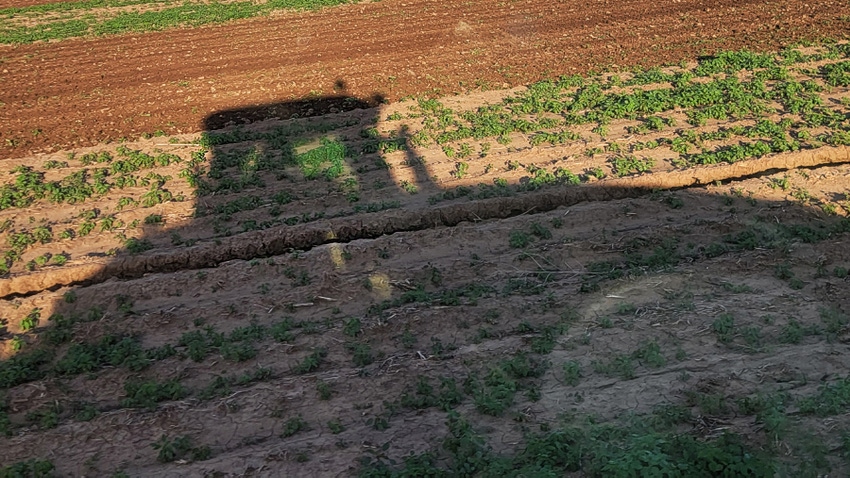
A group of Texas farmers recently filed suit against the United States Department of Agriculture claiming that the USDA improperly discriminated against them in administering various disaster and pandemic relief programs. Plaintiffs in Strickland v. USDA challenge the USDA’s disparate treatment for certain producers based upon race and sex. The Plaintiffs assert that the USDA violated both the Equal Protection Clause of the U.S. Constitution and the Administrative Procedures Act.
Background
The Plaintiffs note that over the past four years, Congress appropriated $13.7 billion to USDA to implement crop and livestock disaster assistance and nearly $11.2 billion to implement disaster assistance programs for coronavirus-related relief. The USDA took these appropriated funds and implemented a number of programs to aid farmers and ranchers who lost income, crops, or livestock due to natural disasters or the pandemic.
Specifically, the Plaintiffs’ Complaint addresses the following eight programs: ERP 2021 Phases 1 and 2, ERP 2022 Track 1, ELRP 2021 Phases 1 and 2, ELRP 2022, CFAP 2 Bonus, and PARP.
The Plaintiffs are Texas farmers located in the Lubbock, Sudan, and Wellington areas who produce a variety of crops, including cotton, peanuts, wheat, grain sorghum, sorghum silage, black-eyed peas, hay, and cattle.
Complaint
The Plaintiffs begin their Complaint with the following sentence summarizing their arguments: “Natural disasters do not discriminate, and neither should the USDA.” The Plaintiffs claim that the USDA based the amount of financial assistance provided by programs on race and sex despite a lack of Congressional authorization to do so. Plaintiffs note that the appropriations bills passed by Congress never mention race or sex. The USDA, Plaintiffs claim, factored it in anyway.
Plaintiffs assert that USDA used two different methods for calculating the amount and type of financial assistance for farmers and ranchers. One method was used for producers falling within the following four categories: (1) veteran farmers, distinguished by having served in the armed forces; (2) beginning farmers, distinguished by being new to the profession; (3) limited-resource farmers, distinguished by having low incomes, and (4) socially disadvantaged farmers, distinguished by being of a particular race or sex. “Socially disadvantaged” farmers include American Indians or Alaskan Natives, Asians or Asian-Americans, blacks or African-Americans, Hispanics or Hispanic-Americans, Native Hawaiians or other Pacific Islanders, and women. The Plaintiffs claim producers falling within these categories were paid “significant additional benefits” such as refunds of insurance premiums, refunds of fees, automatic enrollment in certain programs to cover non-insured crops, or additional financial assistance. For all other farmers, the Plaintiffs claim, a second method of payment calculation was utilized.
For example, under the ERP 2021 programs, Plaintiffs allege that USDA calculated payments for farmers qualifying as “socially disadvantaged” or underserved than for non-qualifying farmers. Specifically, when calculating payment, USDA increased the payment owed to socially disadvantaged or underserved farmers by 15%, but did not make that 15% increase for those farmers not falling within the underserved or socially disadvantaged categories.
These actions, the Plaintiffs allege, are unlawful and unconstitutional. The lawsuit claims that the USDA violated the Administrative Procedure Act by acting beyond the scope of authority granted by Congress. Additionally, USDA allegedly violated the Equal Protection Clause of the United States Constitution by discriminating and treating similarly situated farmers differently based on race and by discriminating and treating similarly situated farmers differently based on sex. Finally, the Plaintiffs claim the USDA violated the Administrative Procedure Act by shifting its policy on processing insurance refunds to a “progressive factoring” system. By doing so, the Plaintiffs claim, the USDA stopped providing refunds of federal crop insurance and NAP insurance premiums and fees to all farmers without offering a reasoned explanation for this action as required by the APA.
The Plaintiffs ask the court to hold these programs unlawful and to enter various declaratory judgments and injunctions preventing the USDA from implementing programs based on race or sex absent clear Congressional authorization.
Motion for preliminary injunction
A week after the Complaint was filed, the Plaintiffs filed a Motion for Preliminary Injunction seeking an injunction or stay against USDA to prevent the USDA from relying on discriminatory criteria as it issues disaster relief. The Court has yet to rule on this motion.
Read more about:
DisasterAbout the Author(s)
You May Also Like




